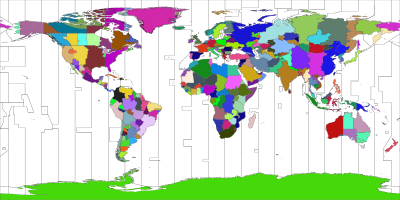A lot of our code, and probably yours, is highly relying on text process. In our mORMot framework, most of its features use JSON text, encoded as UTF-8. Profiling shows that a lot of time is spent computing the end of a text buffer, or comparing text content. You may know that In its SSE4.2 feature […]
June 2015 (5)
2015-06-30
Faster String process using SSE 4.2 Text Processing Instructions STTNI
2015-06-30. Open Source › mORMot Framework
2015-06-21
Why FPC may be a better compiler than Delphi
2015-06-21. Pascal Programming
Almost every time I'm debugging some core part of our framework, I like to see the generated asm, and trying to optimize the pascal code for better speed - when it is worth it, of course! I just made a nice observation, when comparing the assembler generated by Delphi to FPC's output. Imagine you […]
2015-06-16
Handling Cross-Platform Time Zones
2015-06-16. Open Source › mORMot Framework
One common problem when handling dates and times, is that time is shown and entered as local, whereas the computer should better use non-geographic information - especially on a Client-Server architecture, where both ends may not be on the same physical region.

A time zone is a region that observes a uniform standard time for
legal, commercial, and social purposes.
Time zones tend to follow the boundaries of countries and their subdivisions
because it is convenient for areas in close commercial or other communication
to keep the same time.
Most of the time zones on land are offset from Coordinated Universal
Time (UTC) by a whole number of hours, or minutes.
Even worse, some countries use daylight saving time for part of the year,
typically by changing clocks by an hour, twice every year.
The main rule is that any date and time stored should be stored in
UTC, or with an explicit Zone identifier (i.e. an explicit offset to
the UTC value).
Our framework expects this behavior: every date/time value stored and handled
by the ORM, SOA, or any other part of it, is expected to be UTC-encoded.
At presentation layer (e.g. the User Interface), conversion to/from local times
should take place, so that the end-user is provided with friendly clock-wall
compatible timing.
As you may guess, handling time zones is a complex task, which should be
managed by the Operating System itself.
Since this cultural material is constantly involving, it is updated as part of
the OS.
In practice, current local time could be converted from UTC from the current system-wide time zone. One of the only parameters you have to set when installing an Operating System is to pickup the keyboard layout... and the current time zone to be used. But in a client-server environment, you may have to manage several time zones on the server side: so you can't rely on this global setting.
One sad - but predictable - news is that there is no common way of encoding
time zone information.
Under Windows, the registry contains a list of time zones, and the
associated time bias data. Most POSIX systems (including Linux and Mac
OSX) do rely on the IANA database, also called tzdata - you may
have noticed that this particular package is often updated with your
system.
Both zone identifiers do not map, so our framework needed something to be
shared on all systems.
2015-06-06
GetIt "Spirit" Concerns
2015-06-06. Pascal Programming
I'm confused by the GetIt Submitting official blog page. Reminds me the darker ages of Delphi licensing change of XE3. GetIt is the new XE8 package manager for RAD Studio. Information about how to submit your libraries to GetIt has just been made available by Embarcadero. The idea behind GetIt is […]
2015-06-01
Updated Slides about ORM SOA MVC SOLID DDD
2015-06-01. Open Source › mORMot Framework
One year ago, we published a set of slides about the main concepts implemented by our framework. Mainly about ORM (and ODM), NoSQL, JSON, SOA, MVC (and MVVM), SOLID, DDD, CQRS and some patterns like Stubs, Mocks, Factory, Repository, Unit-Of-Work. Worth a look, if you want to find out the benefits […]

